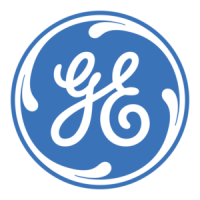(continued)
microwave ovens.
--Do not overcook potatoes, Keycould dehydrate - Donot cover the shelf orany other part
and catch fire, causing damage to your oven. of the oven with metal foil. This will cause
overheating of the microwave/convection oven.
• Cookware may _e hot because
of heat transferred from the heated
food. Pot holders may:he needed to
handle the cookware.
• Sometimes, the oven floor and walls can
become too hot to touch, Be careful-'touching the
floor and walls during and after cooking.
............... nd
• Foods cooked in hqmds (such as pasta) may te
to boil over more rapidly'° than foods containing
less moisture. Should this occur, refer to the Care
and Cleaning sectionis)for instructions on how to
clean the inside of the oven.
- Thermometer--Do not useregular cooking
or oven thermometers when cooking by
probe.
• Oversized food or oversized metal cookware
should not be usedin a microwave/convection
oven because they increase the risk of electric
shock and could cause a fire.
• Do not clean with metal scouring pads. Pieces
can burn off the pad and touch electrical parts
involving risk of electric shock.
•Do not use paper products when the
microwave/convection oven is operated in
the convection or combination mode.
or recommended for use in the microwave oven.
• Remove the temperature probe from the oven
when not using it to cook with. If you leave the
probe inside the oven without inserting it in food
or liquid, and turn on microwave energy, it can
create electrical arcing in the oven. damage oven
walls and damage the temperature probe.
4

